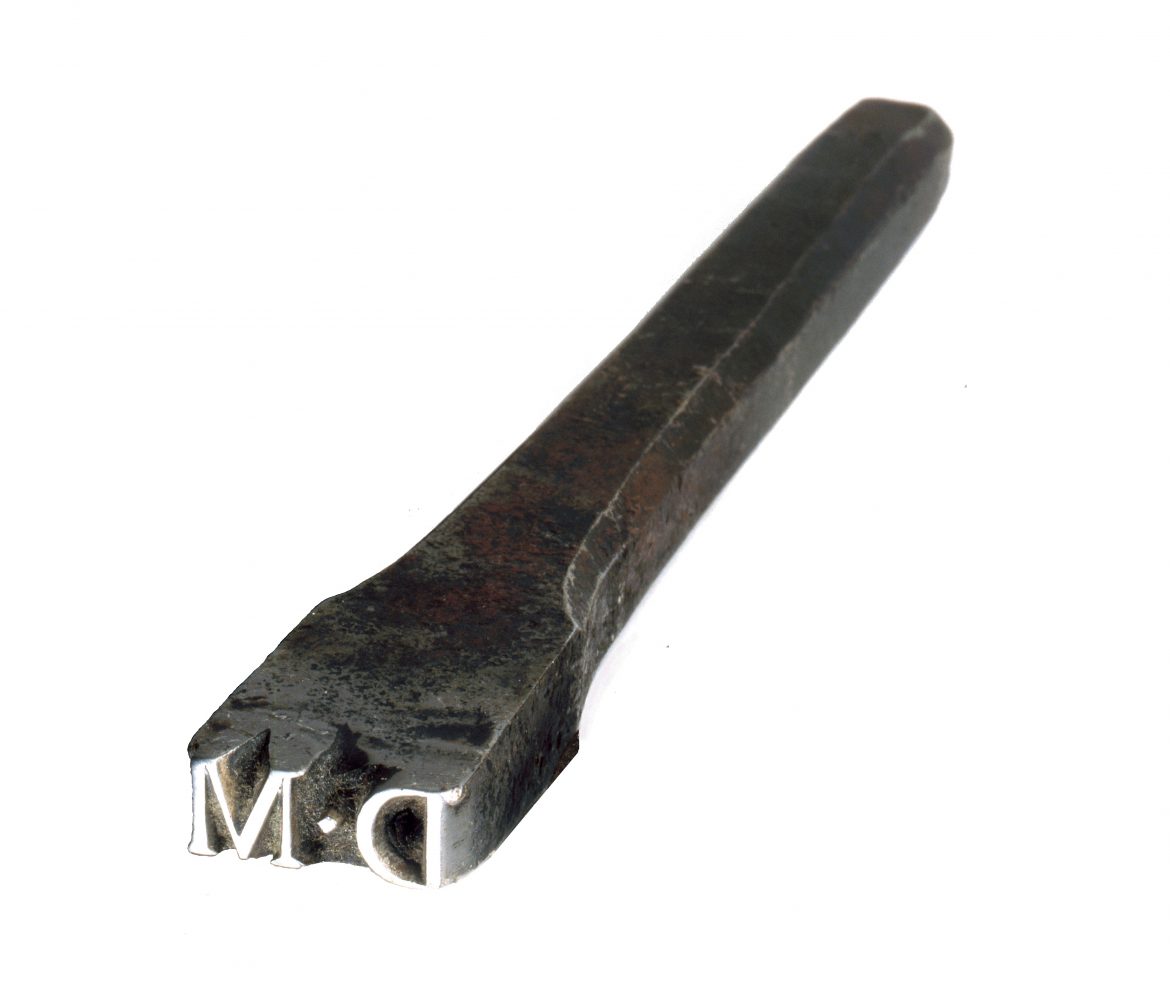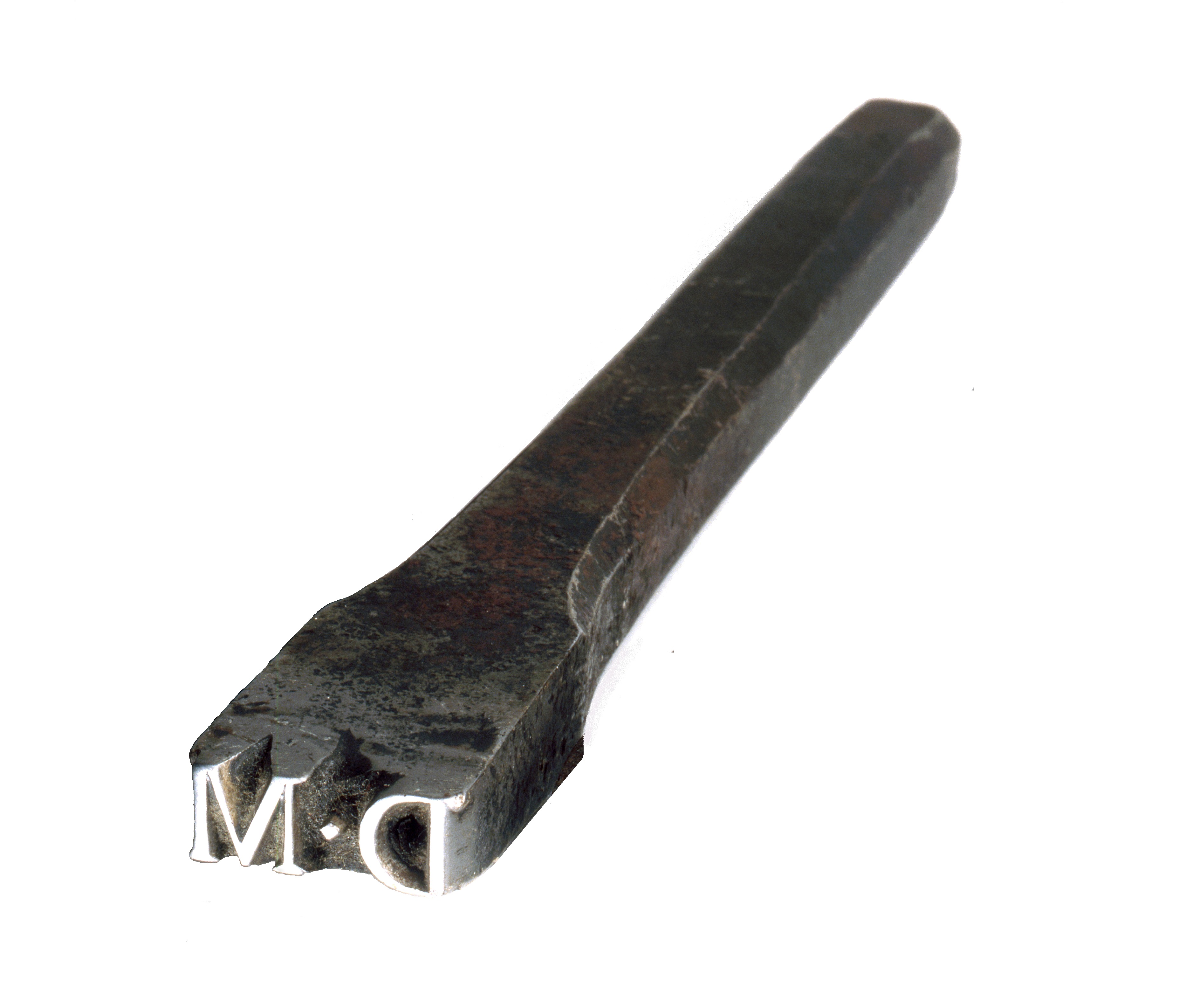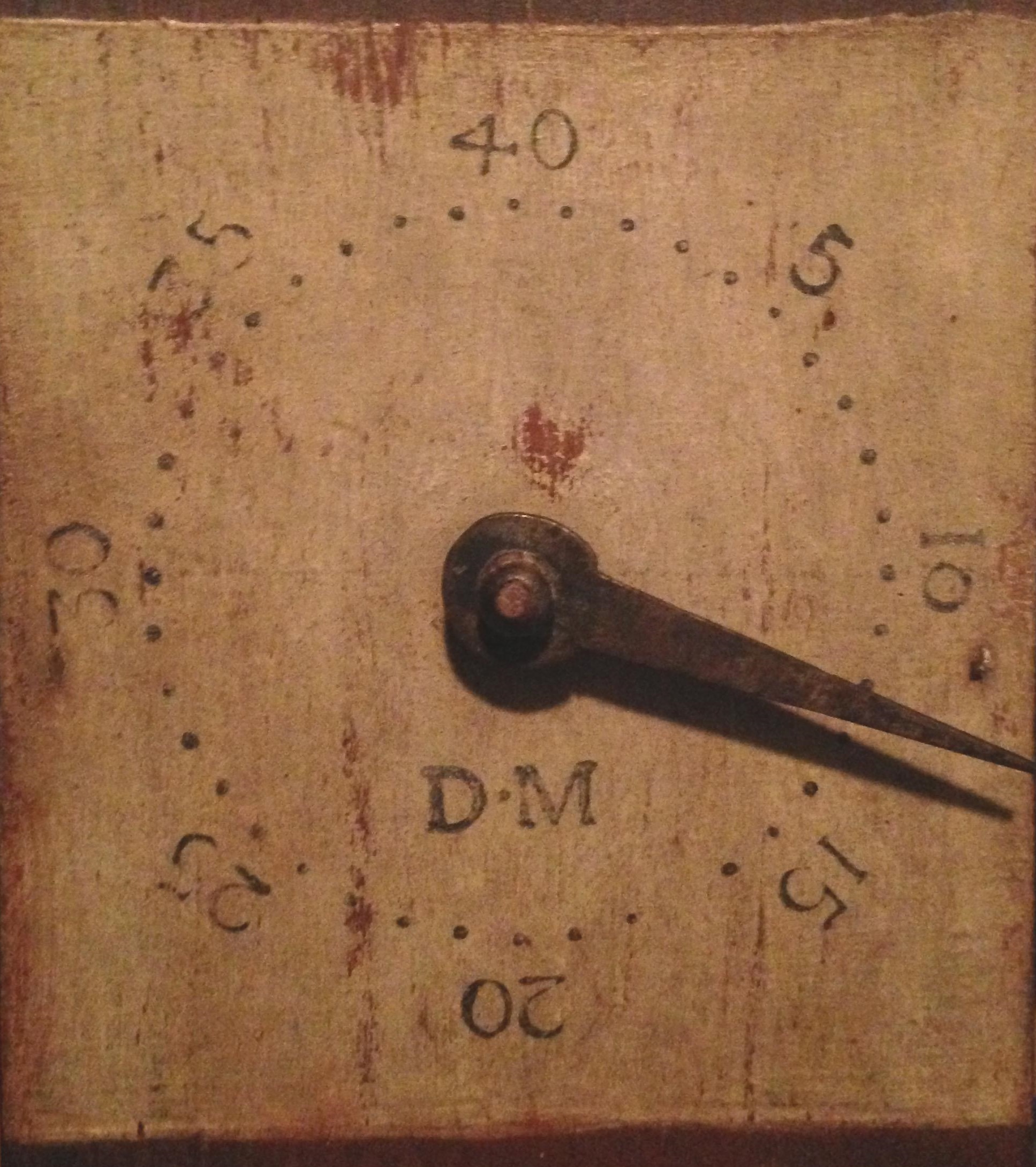
Die Stamp, Church Family, Mount Lebanon, NY, ca. 1800, Shaker Museum | Mount Lebanon, 1950.1683.1
Last week’s post discussed the Shakers and their rules about signing an individual’s work. When the issue of Shakers signing their work is raised, it is often accompanied by a quotation from the “Millennial Laws or Gospel Statutes and Ordinances Adapted to the day of Christ’s Second Appearing,” as they were revised in October, 1845. Section twelve, […]
Last week’s post discussed the Shakers and their rules about signing an individual’s work. When the issue of Shakers signing their work is raised, it is often accompanied by a quotation from the “Millennial Laws or Gospel Statutes and Ordinances Adapted to the day of Christ’s Second Appearing,” as they were revised in October, 1845. Section twelve, “Concerning Marking Tools and Conveniences,” article four, states, “No one should write or print his name on any article of manufacture, that others may hereafter know the work of his hands.” This rule has usually been interpreted to mean that Shakers were not allowed to sign anything they made. Let’s consider, however, what that rule means if we interpret, “articles of manufacture” to mean items made for sale to the outside world rather than objects made to be used in the community. It is known that many products made for sale were marked with the initials of the office deacons responsible for conducting business with the outside world and later the names “Shakers” or “United Society” with a community of origin were used to mark Shaker work.

Die Stamp, Church Family, Mount Lebanon, NY, ca. 1800, Shaker Museum | Mount Lebanon, 1950.1683.1
The object pictured here, a die stamp, cut to mark the initials “D. M.,” was used at Mount Lebanon to mark various Shaker products sold to the outside world. Spinning wheels, reels, tubs, pails, hand cards, and dippers with these initials identified them as the work of the Shakers. This stamp contains the initials of Deacon David Meacham, Sr. (1744-1826), the office deacon at the time the stamp was first used. Other communities followed this example using their deacon’s initials on some products they sold. The initials “F. W.,” (Deacon Francis Winkley) marked spinning wheels, cooperware, and seed packages sold by the Canterbury, NH, Shakers; ‘’D. G.,” (Deacon Daniel Goodrich) appears on bent-wood measures and hand cards made at Hancock, MA, and “J. H.” (Deacon John Holmes) is found stamped into spinning wheels made at Sabbathday Lake, ME. By mid-century the name “Shaker” appeared more commonly on Shaker products. After the Civil War, the full names of deacons began to appear on Shaker products. Deacon Levi Shaw’s name appeared on rug whips made at Mount Lebanon’s North Family and Deacon Dewitt Clinton Brainard’s name appeared on a variety of products produced at Mount Lebanon.

Dipper, Church Family, Mount Lebanon, NY, ca. 1830, Shaker Museum | Mount Lebanon, 2009.23.5

“D. M.” Stamp Appearing on the Bottom of a Dipper, ca. 1830, Shaker Museum | Mount Lebanon, 2009.23.5. Note that all serifs on the “M” are intact on this dipper.
It is not known if this is this “D. M.” stamp was the only die used to mark products at Mount Lebanon or if there were several of these in use. Robert F. W. Meader, a past director of the Shaker Museum, once said he had seen a reference in a Shaker journal to the serif on the “M” on the die having been accidentally broken off. Some stamps found on Shaker objects have the serif – some do not. The die appears to have been hand forged and lacking any mark indicating who made the die, it is not know if it was made by the Shakers or by a die cutter in the world.

“D. M.” Printed with Die Stamp on Face of Clock Reel, ca. 1830s, Shaker Museum | Mount Lebanon, 1953.6440.1. The person who used the die stamp to mark the face of this clock reel used it with ink or paint as one would printer’s type rather than as a stamp to incise a the mark.
As for things made by Shakers intended to remain in their own homes and workshops, it should be understood that while anonymity was required for products made for the world, Shakers were not anonymous within their own families and communities. It was certainly not necessary to know who made what for the family, but people did – it was no secret. If someone wanted to know who made the case of drawers in their retiring room it’s likely someone would remember, and probably approximately when it was made. A tremendous amount of information about the built environment must have been retained in the minds of the 50 to 100 members of each Shaker family. In the midst of this kind of shared knowledge the act of putting one’s name on something they made made little difference – most family members would know who made it anyway. Why some cabinetmakers such as Brother Orren N. Haskins signed a number of things he made and others such as Brother David Rowley did not, had less to do with “Gospel Statutes and Ordinances” than it did with individual psyches. In nearly every case when a piece of furniture is found signed by its maker – the signature is on the bottom or back of a drawer or on the back of the piece rather than where it is easily seen.
The Millennial Laws cited above also includes in section twelve an article stating, “It is not allowable for the brethren to stamp, write or mark their own names, upon any thing which they make for the sisters,” or vice versa. While the logic of forbidding behavior that might be intended to curry special favors or affection from a member of the opposite sex seems perfectly reasonable in a celibate community, it is possible read into this rule permission to put one’s name on things made for the family in general or things made for personal use. A third article in the same section says, “The initials of a person’s name are sufficient mark to put upon any tool, or garment, for the purpose of distinction.” In this statute the Shakers are discouraging unnecessary work and the opportunity for unnecessary embellishment in how one marks things. Clothing, linens, woodworking planes, and garden tools are examples of things that may need to be identified as to the person who used it. The collection at Shaker Museum | Mount Lebanon strongly reflects an adherence to this statute in the markings found on tools and textiles.
Whether the above is perfectly accurate or not in its argument concerning marks of manufacture and ownership, it is at least our desire to encourage a broadening of the discussion of those rules and sayings that are so often quoted to show that Shaker always or always did not do something.